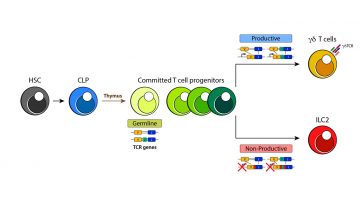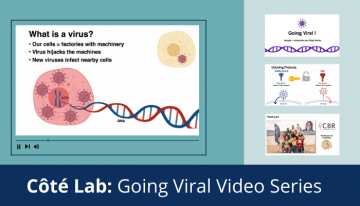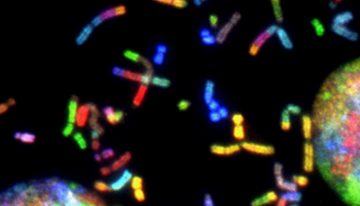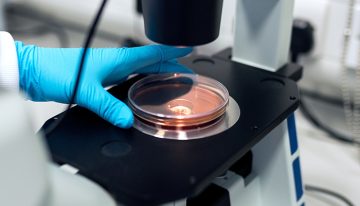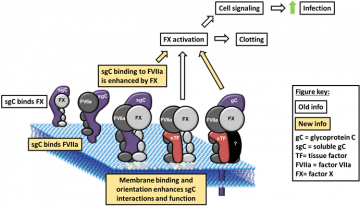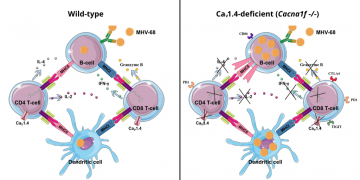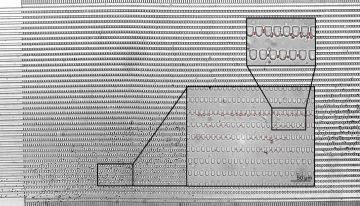Research
Challenging the dogma of innate lymphoid cell (ILC) development
January 7, 2021
New research from the McNagny Lab finds that type-2 innate lymphoid cells (ILC2s), which play a key role in mucosal immunology and allergic lung disease, may develop in the thymus rather than the bone marrow, thus rewriting the “life-story” of ILC2 development.
An Alternative Take on Summer Student Research Projects: The “Going Viral” Video Series
December 10, 2020
Mahtab Gill, Loïc Caloren, Nicolas Gauthier, and Nancy Yang have used their collective scientific knowledge and laboratory experiences to communicate everything a lay person should know about HIV and SARS-CoV-2.
A Step Towards Improved Lubricants: Mega-HPGs and Arthritic Diseases
December 3, 2020
Intact synovial fluid is critical for lubricating joints in the human body. It prevents the cartilage covering the bones at the joints from being damaged by friction caused by everyday movement.
Peptide-based Drugs: A SPOT More Stable
November 12, 2020
Host defense peptides – in addition to their synthetic analogues, innate defense regulator (IDR) peptides have recently gained attention as a new strategy for treating challenging infections.
UBC researcher helps map the human proteome
October 19, 2020
With 90 per cent of the proteins in the human body now mapped, Overall says scientists have a deeper understanding of how individual proteins interact to influence human health, providing insights into disease prevention and individualized medicine.
Fast and Furious: Targeting “nitro(gen) boosts” in a deadly bacterium for next-generation antimicrobials
August 20, 2020
What if bacteria also had the ability to use nitrogen for a “boost”? Alford et al. recently examined the role of a two-component system called NtrBC in Pseudomonas aeruginosa.
Coagulation Going Viral: Wisdom to Draw from Herpes Simplex Virus-1 Investigation
June 5, 2020
Cardio- and cerebro-vascular diseases remain the leading causes of death worldwide.
Soil in wounds can help stem deadly bleeding
May 7, 2020
New UBC research shows for the first time that soil silicates—the most abundant material on the Earth’s crust—play a key role in blood clotting.
Connecting the immunological dots: (Ca2+)n we do it?
April 23, 2020
When we think about how lymphocytes work, we tend to think that antigen presentation and signaling are the be-all and end-all of immune system activation and function.
A Novel Microfluidic Device to Aid in the Search for Red Blood Cell “Super-storers”
March 26, 2020
Donated red blood cell units are a vital component of patient care, supporting patients with a wide variety of disorders.



